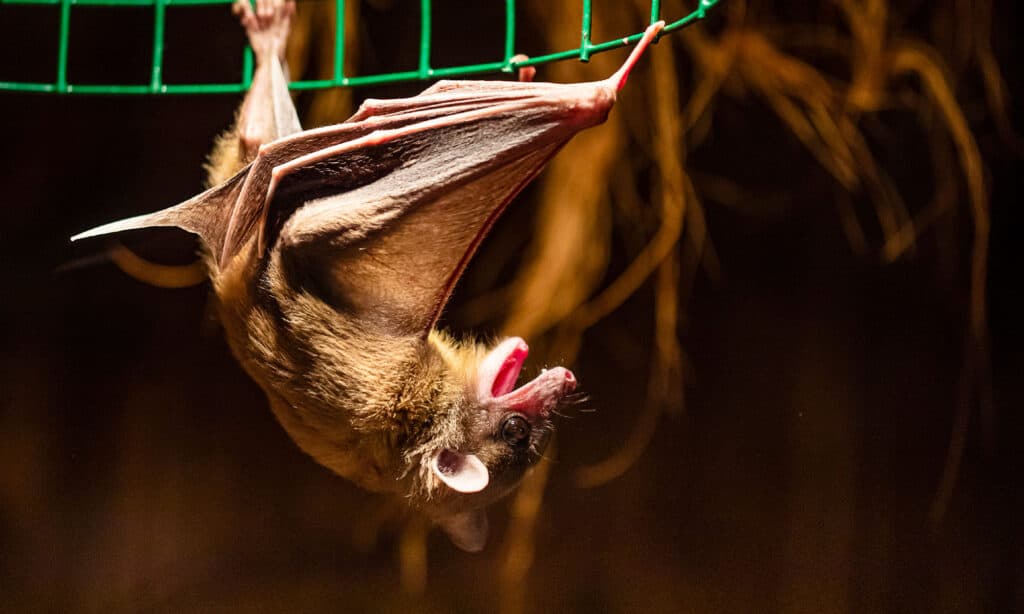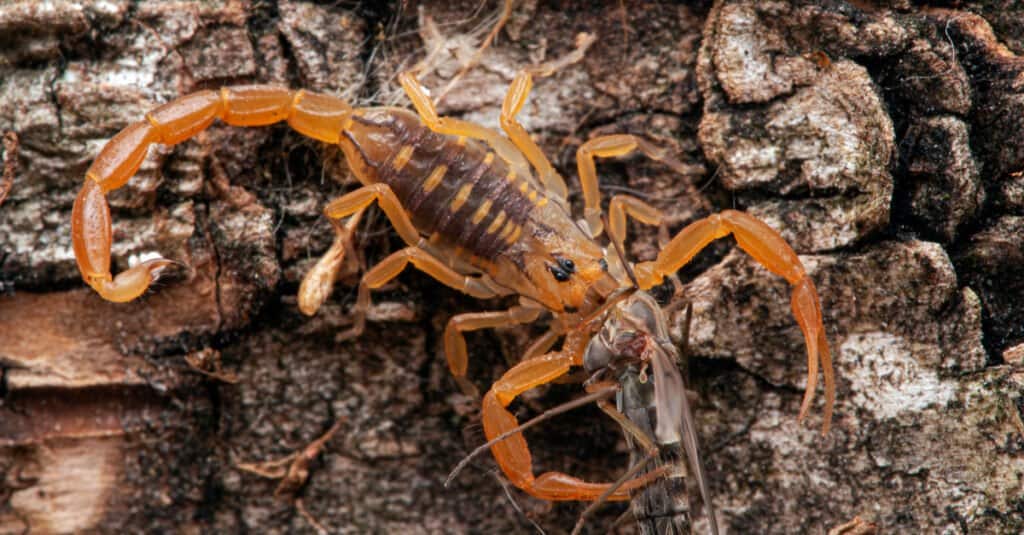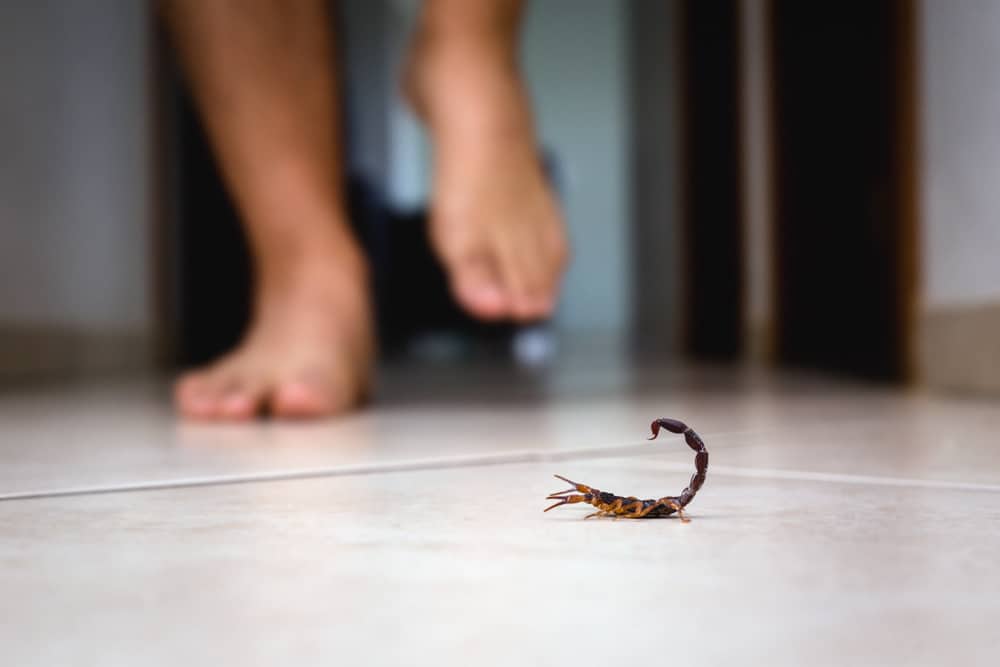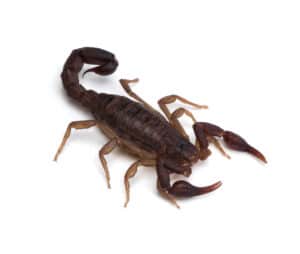The thought of having a scorpion around your property, or even in your house, is scary! We can totally understand why you’d want to learn how to keep these creatures away, especially if you live in a favorable area for scorpions.
Moreover, we can only imagine how seeing one in your home must feel. If you haven’t decided yet to pack your bags and leave the house, keep reading to find out how to know whether there are more scorpions in the area and whether a scorpion sting is dangerous. First things first, don’t panic, as scorpions won’t sting you if they don’t feel threatened!
What Keeps Scorpions Away?
The easiest answer to this question is “their predators.” Birds, bats, and lizards will delight in a scorpion! Even chickens can eat scorpions! If you have any of these around the house, you may consider your area free of scorpions.
Moreover, since scorpions are attracted to areas filled with roaches, crickets, and other insects, you should keep your home free of them to avoid “inviting” scorpions.
You can use some natural products against scorpions. Cinnamon, peppermint, lavender, and cedar essential oils are known to “scare” these creatures away. Dilute the oil and spray it on baseboards, doorways, windowsills, and anywhere else you’ve spotted or expect to see scorpions. Just ensure not to use anything that may be toxic to your plants or pets.

Predators like birds and bats keep scorpion populations at bay.
©Here/Shutterstock.com
How Do You Scorpion-Proof Your House?
Spotting a scorpion in your house can be traumatizing. So how do you scorpion-proof your house? Here are some tips:
- Cover every crack and opening. Pay attention to baseboards, doorways, windows, wall cracks, and ceiling fans. Scorpions can squeeze through the tiniest cracks! If you can’t manage it by yourself, you can always seek professional help.
- Always keep your house clean. Even the smallest crumbs may attract bugs, which, in turn, will attract scorpions.
- Use sticky traps for mice. They can be placed near walls since scorpions often follow the wall line. They can also be useful along entryways, furniture, and other dark places. Just ensure that the traps aren’t toxic for your family and pets.
- Ensure there’s no water leak in your house, as scorpions will often venture into people’s houses while looking for water sources.
- Throw away all cardboard boxes or anything a scorpion may hide in. Scorpions prefer dark, cool, enclosed spaces, so boxes are the perfect hiding spot!
- Store food and trash in well-sealed containers.
- Don’t keep firewood near your house. Store it at least 30 feet away from the entrance, and always check it for water damage.

Scorpions prefer dark, cool, enclosed spaces, so cardboard boxes are the perfect hiding place!
©iStock.com/Andrey Deryabin
How to Prevent Scorpions from Getting in Your Bed?
Besides the measures listed above, here are some more tips that can help you sleep tight:
- Don’t place your bed near a wall.
- Insert the feet of the bed in glass jars because scorpions can’t effectively climb smooth glass.
- Don’t let your bedding fall off your bed, as a scorpion may use it to climb onto your mattress.
- Surround your bedroom with sticky traps.
- Hang a smooth surface on the ceiling over your bed; this will prevent scorpions from falling onto you in the night!
I Found a Scorpion in My House. Are There More?
[Image needed. – Caption: Scorpions are lonely creatures and only seek other scorpions when it’s mating season.]
Yikes! This must’ve been a terrible experience! If you haven’t fled yet, we’re here to tell you the situation isn’t as bad as you think. Most scorpions are lonely creatures, only seeking out other scorpions when it’s mating season.
However, if you find a bark scorpion in the winter, you should check your house thoroughly because they’re the only social scorpion species in urban areas. During winter, bark scorpions can live in groups as large as 30 individuals! Use UV light to check every corner of your house because they glow under it. If you’re not sure you can handle it, you should seek professional help to have your house checked and scorpion proofed.
Check whether it’s an adult or a baby scorpion. Baby scorpions are a light creamy color and are smaller than adults. If it’s a baby, that’s not good. Female scorpions can give birth to up to 100 babies at once. In this case, you should definitely seek professional pest control.

Scorpions are solitary creatures, with the exception of bark scorpions who travel in groups.
©Ernie Cooper/Shutterstock.com
What Should You Do if a Scorpion Stings You?
Contrary to what people think, most scorpion stings don’t require medical treatment. That is, if the symptoms aren’t severe. On the other hand, they can be extremely painful; that’s why people probably expect these stings to be life-threatening. Only 30 out of around 1,500 scorpion species are dangerous to humans. However, if your pain worsens, if you develop an allergic reaction, or if the scorpion stung a child, you should seek medical attention.
Here’s what you should do to avoid an infection:
- Clean the wound with water and soap.
- Apply a cool compress to the sting spot.
- Take a pain reliever, such as ibuprofen.
- Use a corticosteroid or an antihistamine at the sting site.
- Avoid eating or drinking if you find it difficult to swallow.
- Make sure your tetanus vaccine is up to date.
Scorpion sting symptoms may include numbness all over the body, difficulty swallowing or breathing, restlessness, seizures, irregular heartbeat, and abdominal pain, among others.

Contrary to what people think, most scorpion stings don’t require medical treatment.
©RHJPhtotos/Shutterstock.com
Up Next:
The photo featured at the top of this post is © Vova Shevchuk/Shutterstock.com
Sources
- Ask A Biologist, Available here: https://askabiologist.asu.edu/scorpion-facts
- Mayo Clinic, Available here: https://www.mayoclinic.org/diseases-conditions/scorpion-stings/diagnosis-treatment/drc-20353865
- Cleveland Clinic, Available here: https://my.clevelandclinic.org/health/diseases/17860-scorpion-stings
Thank you for reading! Have some feedback for us? Contact the AZ Animals editorial team.






